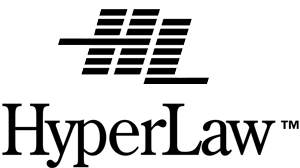
Advocacy
From its inception, HyperLaw has been an advocate for pubic access to the law and court information, illustrated significantly by its litigation against West Publishing Company which resulted in West losing its claims to the copyright of their edited court opinions in the West Reporters and the citation to these cases. At the time, in 1994, West, relying upon West v. Mead, asserted the right to both. In 1997, a Second Circuit panel, which include now Justice Sotomayer, in am unpublished opinion, denied attorneys fees to HyperLaw on the basis that West's copyright claims were not wholly unreasonable.
Because of these cases, entities like Google are able, without paying ransom to West, to publishe court cases and include citatiion information, and, importantly, the incentive of West to interfere with the dissemination of opinions by courts was severely diminished, since they could not longer asssert copyright as to their "corrected" versions.
HyperLaw also participated in advocacy before a number of bodies to establish a public domain citation, advocating for a citation based upon the court name, index number, date of the opinion, and the number on the docket sheet if such a number was established.
HyperLaw pressured the federal courts to release court opinions at no cost to the public, and, alerting the court systems that some courts were not following these policies.
As a result of these efforts by HyperLaw and others, the Government Printing Office has initiated a project to compile and host federal court opinions. Yet, even there, these efforts are subject to question and HyperLaw is pointing out some of the glaring omissions, such as the absence of opinions from the Sourthern District of New York and many other courts (as of 2015). HyperLaw has always prided itself on pressing courts to clearly indicate the breadth and scope of its dissemination of opinions, and believes that missing courts should be listed with the notation that the opinions are missing. Sadly, also, the GPO decided to omit the docket item number from the metadata for the opinions, a quite odd approach. This is HyperLaw's current project.
Another current HyperLaw project is to address those courts implenting the ECF system in such a way as to not have motions papers filed with the courts when the motions are made - an somewhat odd approach to public transparency.
Do you wish to comment - go to the HyperLaw Blog!!!
Visit the original web site established in 1995!!old site.
John B. West, Multiplicity of Court Opinions. 1909.
The definitive article on the need for public domain citations by the courts when decisions are issued. There is not much new today.
THE HYPERLAW REPORT
Newsletters published in July 1995 and December, 1995 concerning citation and court publication of opinions - still relevant today.
HYPERLAW V. WEST
Nineteen years later - a cornerstone of copyright law as to the lack of copyrightability of non-original works.
ACCESS TO THE LAW
United States District Courts opinion dissemination
Citation to unpublished opinions.
Legal Markup Standard
PRESERVE THE PUBLIC DOMAIN
Google and Fair Use - the virtual card catalog.
Database protection.
PUBLIC DOMAIN CITATION
Adopted by the courts of the United Kingdom - delays persist in US Courts.